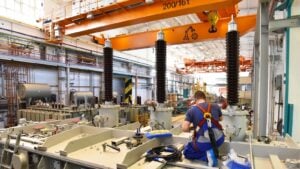Canada’s labor movement is telling Ottawa to keep its powder dry as trade talks with Washington grind on without a breakthrough.
With new U.S. import taxes still biting into autos, steel, aluminum and other sectors, unions argue that rushing into concessions would lock in losses without delivering certainty.
The call puts fresh pressure on Prime Minister Mark Carney’s team, which has tried to cool tensions while claiming Canada still holds real leverage at the table.
Lana Payne, president of Unifor, said in a press release, “No deal is better than a bad deal.” She warned that piecemeal fixes would surrender bargaining power before the United States offers meaningful relief.
The union’s position reflects the reality of integrated supply chains that move parts and finished goods across the border on tight schedules.
Any half step deal that leaves core tariffs in place risks more production shifts, thinner margins and fresh layoffs.
Ottawa has signaled it will not trade away strategic ground to buy a short reprieve. In August, Carney sought room to maneuver on domestic policy when Carney hits pause on the EV mandate to balance trade, jobs and tariffs.
The government is also trying to cushion smaller firms from whiplash through targeted support, including a tariff relief program for B.C. small businesses.
But support programs are bridges, not destinations, and they do not resolve the core problem of border costs that move faster than companies can.
Business groups and premiers have pulled in different directions over how hard to retaliate, yet a broad consensus has formed around one idea.
A quick deal that fails to lift headline duties on autos and industrial metals would only extend uncertainty and depress investment that is especially true for automakers and parts suppliers planning 2026 model year runs and retooling for electric platforms.
If tariffs persist into the USMCA review window, boardrooms will revisit capital budgets and shift orders to U.S. plants that can ship duty free inside America.
Rail and trucking volumes into the Midwest and Northeast have softened from summer peaks, according to industry executives, while Canadian exporters report longer delivery times and higher working capital needs to cover delayed receivables.
Canada remains a critical supplier of energy, food and metals, and the United States relies on Canadian factories for high value auto components and advanced materials.
The pipeline of federal permits and financing for large projects also hints at a longer game. Carney’s project picks suggest the government wants to speed up industrial approvals to anchor more investment at home, no matter how the near term fight over tariffs ends.




















